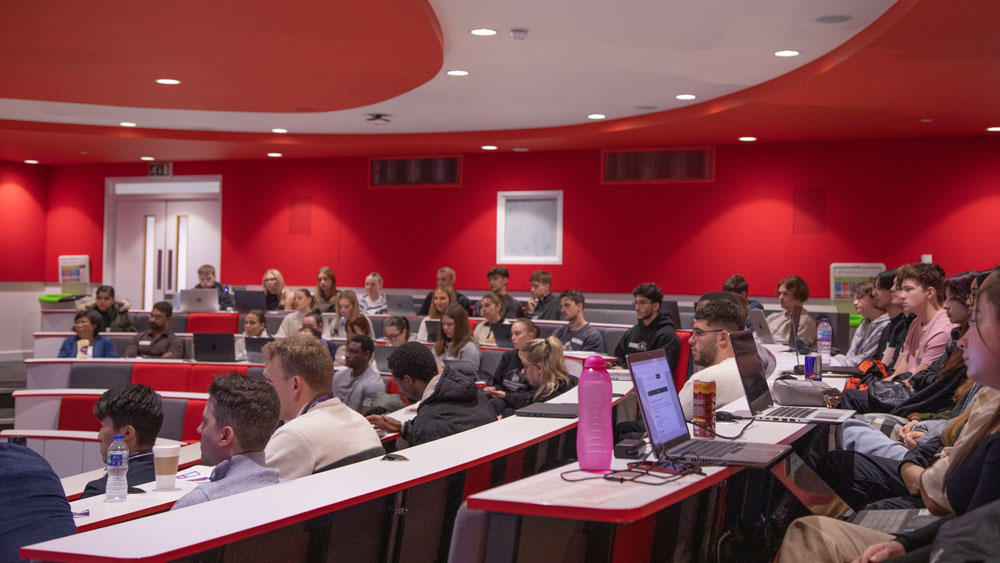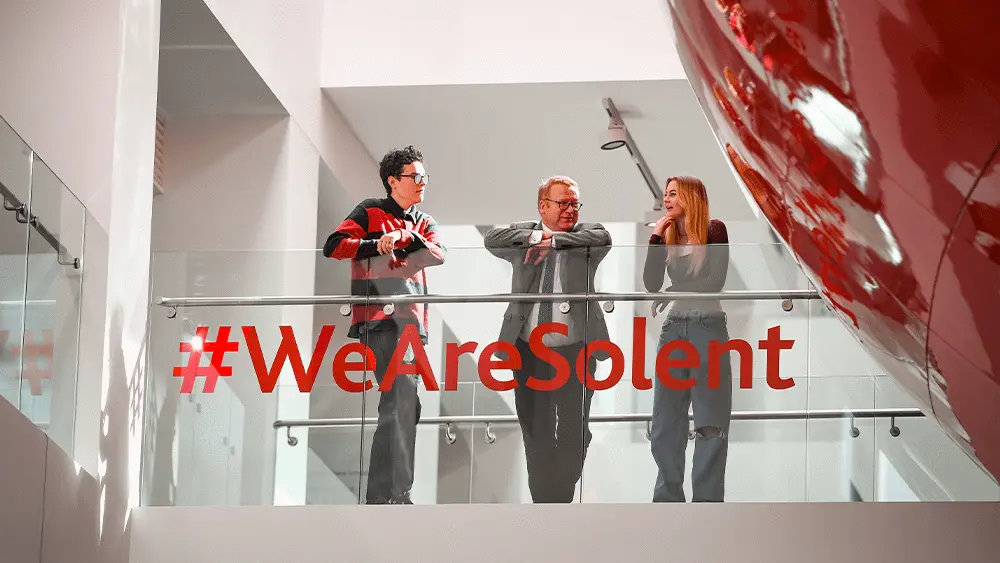
26-mile walk shines a light on River Itchen
BA (Hons) Photography student, Roxanne Bennett, has explored river pollution in her Final Major Project.
20 August 2025
BA (Hons) Photography student, Roxanne Bennett, has explored river pollution in her Final Major Project.
20 August 2025
At Southampton Solent University, an in-house creative agency is connecting talented students to businesses who need their skills.
18 August 2025
Millie Payne, a BA (Hons) Sports Journalism graduate, is sharing her experience of applying to Solent University through Clearing.
11 August 2025
Rachel Lamb, Course Leader Fashion Media and Beauty Promotion, has been awarded a National Teaching Fellowship.
8 August 2025
Annual maritime awards presented in recognition of outstanding performances
7 August 2025
Cara Knoy, a BA (Hons) Graphic Design graduate, used her Final Major Project to raise awareness of a community close to her heart.
7 August 2025
Solent & Saints are set to continue their productive partnership for another three years
6 August 2025
Clearing 2025 is open at Southampton Solent University.
5 August 2025
BA (Hons) Sports Journalism graduate, Will Hewlett, will be a Rising Host at this year's The Hundred.
30 July 2025
Louis Ross, a 2025 BA (Hons) Graphic Design graduate, has been recognised for his impressive Final Major Project.
28 July 2025
Andy Chan has been appointed Associate Pro Vice-Chancellor - Research and Knowledge Exchange at Southampton Solent University.
25 July 2025
Experience life as a student at Solent at one of our on-campus or virtual undergraduate, postgraduate or maritime open days.
Find out more
Solent students enhanced their skills at the Gothia Cup in Sweden
24 July 2025
The 2025 National Student Survey results have highlighted the positive experiences of students in the Department of Art and Music.
23 July 2025
Southampton Solent University's recent graduates are celebrating success at this year's New Designers.
22 July 2025
Southampton Solent University has been nominated for a Building the Future Construction Award.
21 July 2025